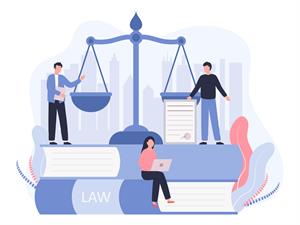PDF chapter test TRY NOW
Values inherent to Human Rights:
Human rights are based on certain universal and inalienable values across the world. These values enrich the ideals of Human rights. Some of the important values that govern human rights are:

Justice: Right to Free and Fair trial. Proportional punishment for the crime committed and there should not be “Double Jeopardy” (Being punished for the same crime more than once)
Equality: Every individual has to be treated equally before the law, and there should not be any discrimination on the grounds of Race, Religion, Sex, Ethnicity, and Place of Birth etc.
Dignity: An individual should not be forced to perform any labour or be treated as a slave. Every single entity is entitled to the right to life and liberty with integrity as its cornerstone.
1. Universal:
Every human in this universe is entitled to inherent rights and is born with them irrespective of race, religion, or ethnicity.
Article 1 of the UDHR states that “All human beings are born free and equal in dignity and rights, " making them Universal.
2. Inherent:
Human rights are neither granted nor acquired by any means as they are inherently embedded with a human being right from his birth.

Human Rights
3. Fundamental:
These rights are fundamental as they allow humans to have a fair share of life with dignity, right to food, and shelter. Stripping these rights would make the life of a human miserable and leave them meaningless.
4. Indivisible:
Human rights cannot be divided and denied as the other rights are guaranteed. Regardless of their relationship with political, cultural, and social issues, every human should be treated equally.
All human rights have equal weightage and cannot be prioritised according to the whims and fancies.
5. Interdependent:
Every human right is interconnected with one another as to exercise or to fulfil one right another right is inherently attached with it. The fulfillment of one right highly depends wholly or partially upon the fulfilment of others.
6. Irrevocable:
Inherent human rights cannot be abridged or taken away from an individual at any cost. This irrevocability is that these rights are not bestowed upon an individual by any authority.
Even governments are not entitled to strip the rights of human beings.
7. Not Absolute:
Governments of the countries had placed certain restrictions on individuals' rights, which make the rights qualified and not absolute.
